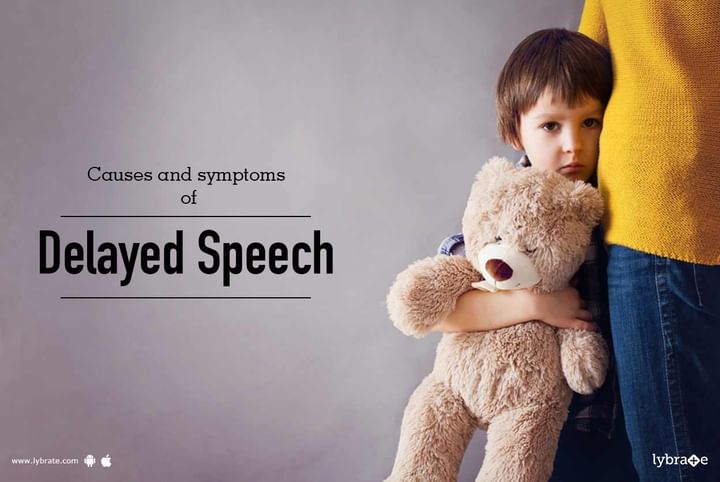Causes and symptoms of Delayed Speech
It might happen that you may not find your child, at twelve months to two years of age, at the same level as their peers in verbal communication. You think it's just a developmental problem they are facing and put off seeking professional advice; an intrinsically wrong step to take, because your child might be suffering from Speech Delay.
Delayed speech, or alalia, can be roughly defined as a delay in the development and use of the biological mechanisms that produce speech.
The symptoms of speech delay are roughly categorized into age related groups, generally beginning at the age of 12 months and continuing through the early adolescence, and they are:
1. Age-12 months
a. It is indeed a symptom if your child cannot point at objects or cannot manage gestures, such as waving good-bye.
b. Another symptom is that if your child does not prefer to communicate verbally as much as his/her peers.
2. Age-15-18 months
a. If your child is unable to pronounce familiar syllables or simply cannot call you even by this time, it's a worrying symptom.
b. You find your child unable to, or simply not reciprocating to 'no', 'hello', 'hi', 'bye'.
c. If your child is unable to extend his/her vocabulary up to 15 words by fifteen months, then it's a symptom.
3. Age-2-4 years
a. You find your child unable to spontaneously produce speech and words.
b. Another worrying symptom is if your child is lacking consonant sounds at the beginning and end of words while speaking.
c. If you still find your child unable to form simple sentences and words, then it is indeed a troubling symptom, confirming the disorder.
The causes for the speech delay disorder are:
1. A primary cause can be physical disruption in parts of the mouth such lips or palate, which may be deformed.
2. Another serious cause can be an oral-motor dysfunction which is the disruption in the creation of the specific area of the brain which deals with speech and communication.
3. The disorder can also be attributed to impairment in the development of the child's intellectual, receptive and expressive abilities.
4. There can also be psychological causes involving school environment and peer relationships which might lead to disruption of speech patterns and reluctance in speech expression and development. If you wish to discuss about any specific problem, you can consult a doctor and ask a free question.



+1.svg)
